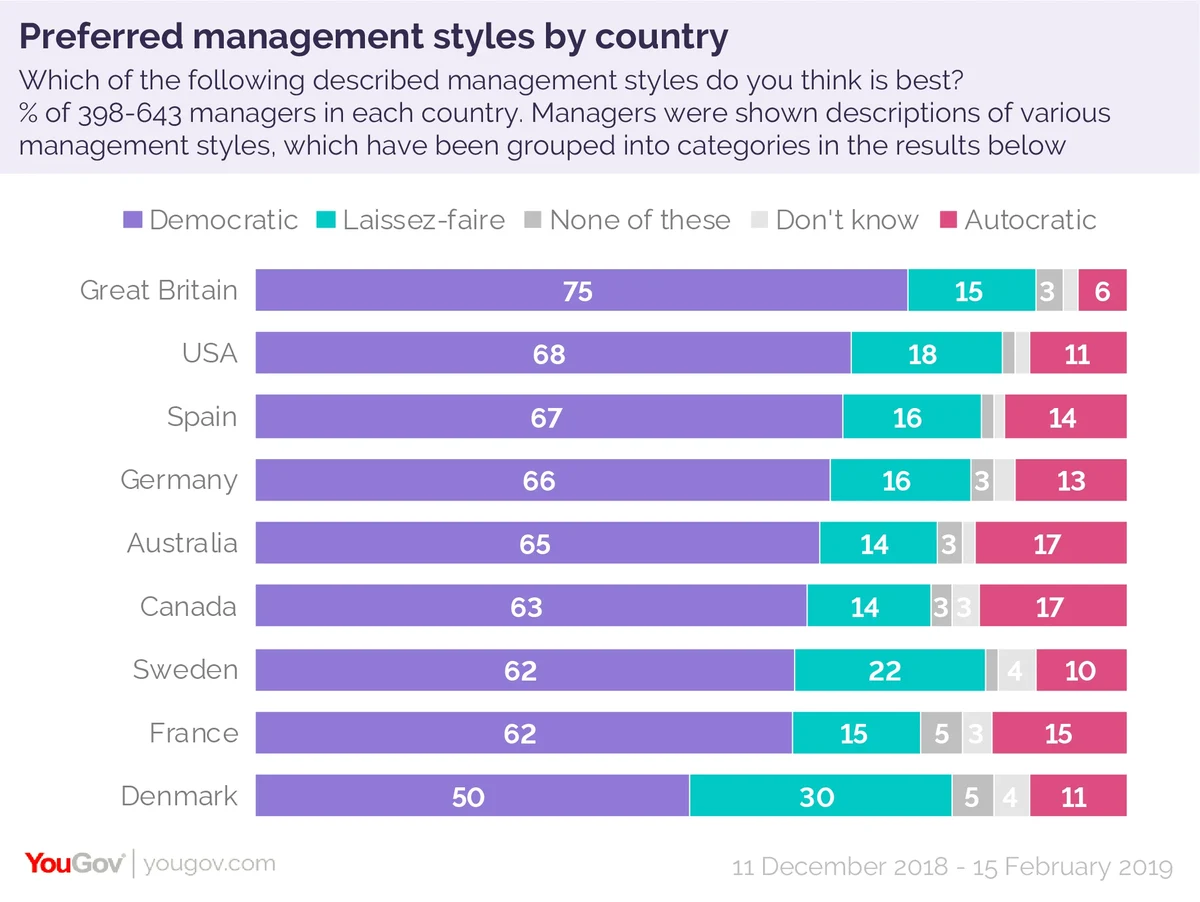British bosses are most likely to favour a “democratic” management style
A new YouGov international business omnibus surveying more than 4,500 managers in nine Western nations, uncovers how different management preferences are across the business world.
YouGov showed managers descriptions of six management styles (three “Democratic”, two “Autocratic” and one “Laissez Faire”) and asked them which they thought was best.
Democratic management styles prove most popular in all countries, although there is a wide degree of variance – from 75% of managers in Great Britain to 50% in Denmark.

The most ‘democratic’ Democratic management style is actually the least favoured. The “Democratic-Collaborative” approach – i.e. on in which “the manager communicates extensively with employees and makes decisions based on the majority view” – is only favoured by 5-13% of managers.
Much more popular are the “Democratic-Consultative” style – in which the manager actively seeks out the opinions of their employees, but retains decision-making responsibility – which is favoured by 21-45% of managers, and the “Democratic-Participative” style – where the manager actively seeks out the opinions and ideas of their employees and they work together to make decisions as a group – which is preferred by 18-27% of bosses.
A Laissez Faire management style is noticeably more popular in Denmark than any other nation. Here 30% of managers said they favoured this approach. Managers in the only other Scandinavian nation surveyed – Sweden – are the second most likely to think that a Laissez Faire approach is best at 22%. In the remaining nation this figure sits between 14-18%.
Autocratic management styles are not especially popular, with only small minorities of bosses favouring them. Managers in Australia and Canada are the most likely to favour the Autocratic approach (17% in both countries), while British bosses are the least likely (6%).
Photo: Getty







